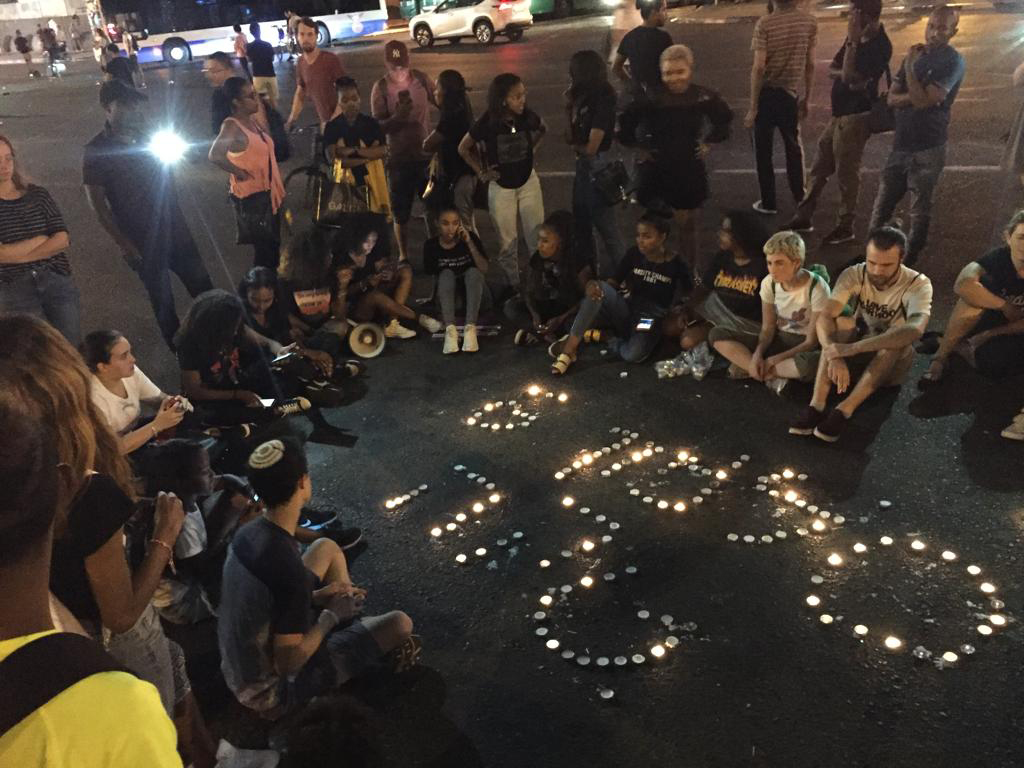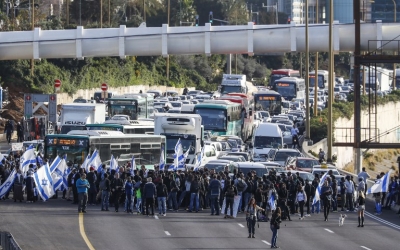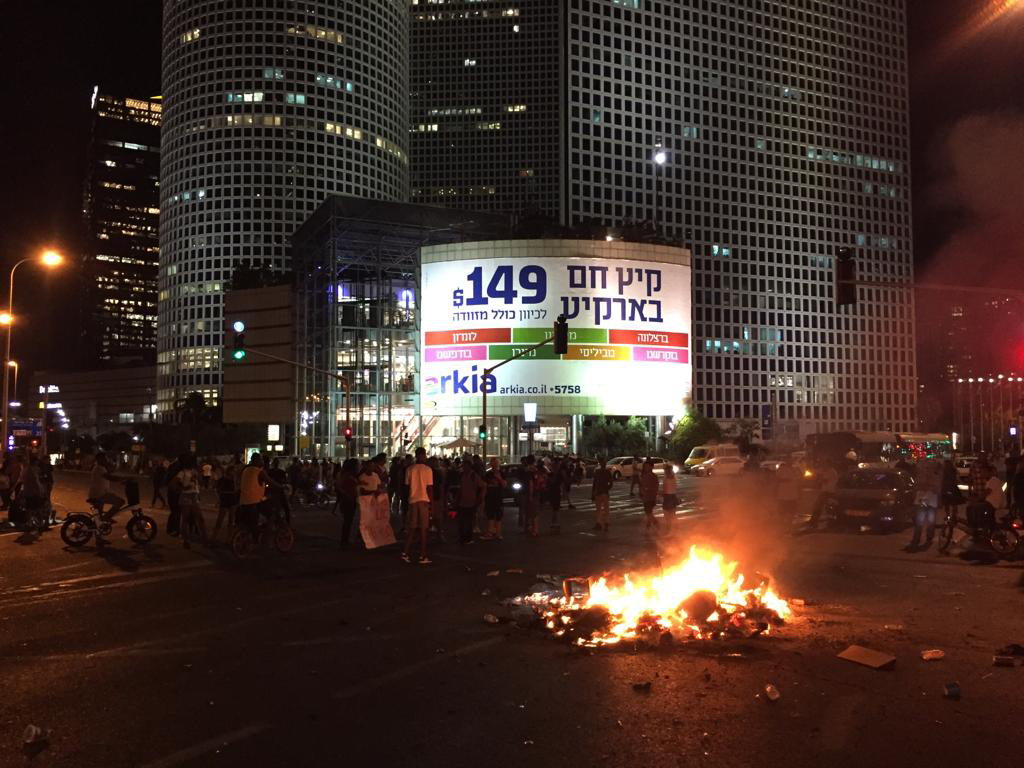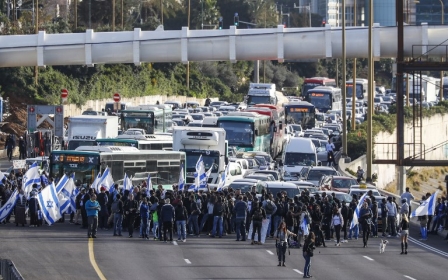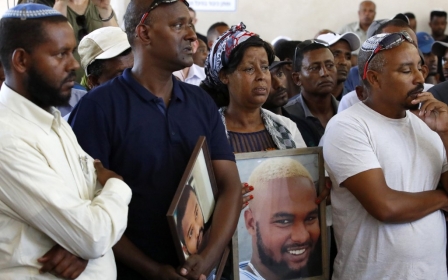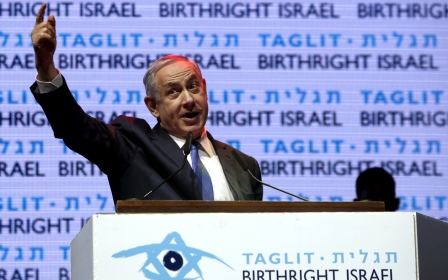Thousands protest in Israel after deadly police shooting of Ethiopian teenager
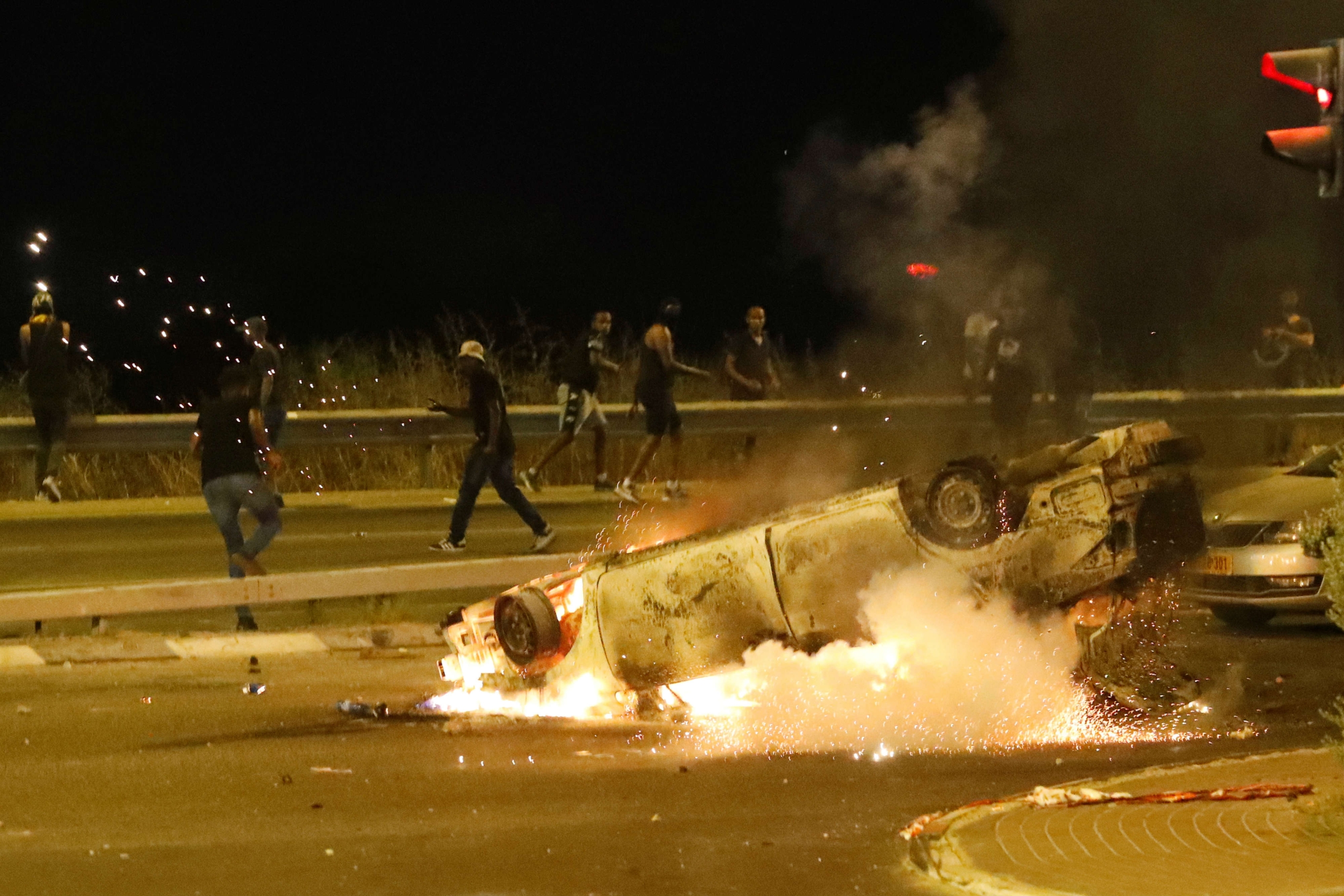
Thousands of Ethiopian Israelis have taken part in demonstrations across the country to protest against the police shooting of an 18-year-old in Haifa earlier this week.
The death of Solomon Teka on Monday provoked outrage among members of the Ethiopian community who claim that young black Jews of Ethiopian origin face police harassment and violence.
"Today, we do not pass here," a demonstrator in Tel Aviv told Middle East Eye on Tuesday evening, without providing their name.
Forty-seven police officers were injured and 60 protesters were detained in demonstrations across the country on Tuesday, the Israeli police said in a statement.
In places like Haifa, where the shooting took place, protesters blocked highways with burning tyres, Israeli newspaper Haaretz reported.
New MEE newsletter: Jerusalem Dispatch
Sign up to get the latest insights and analysis on Israel-Palestine, alongside Turkey Unpacked and other MEE newsletters
In the Shfela area, demonstrators blocked main junctions for several hours, while in Tel Aviv, hundreds of demonstrators blocked the main intersection of the major Ayalon Highway.
On the slope to Ayalon South in Tel Aviv, MEE witnessed several demonstrators blocking traffic. Some sat on the ground, some were standing and talking, and others were praying.
An incensed motor cyclist, who tried to get by the protesters, shouted: "How does this help you? It will not bring him back and it will not do anything."
A protester responded: "Today we stand all day in silence. The whole country will stop with us."
Another demonstrator, who asked not to be identified, said she was "really afraid" of how the Israeli police might respond to the protests.
"Who cares about the family? Do they have a lawyer?" she added.
"By this time, the police investigation department is reviewing the case. At this moment they are finding the best excuses for the shooting."
Shot in the back
Teka was shot in the back on Monday by an off-duty police officer who reportedly was trying to break up a fight between youths when the incident took place.
The officer claimed he felt "his life was in danger" when the youths began to throw stones at him, a police statement said.
The police have placed the officer under house arrest and have begun an investigation.
In a video late on Tuesday, Israeli Prime Minister Benjamin Netanyahu said that "everyone was mourning the tragic death of Solomon Teka".
While acknowledging "there are problems that need to be solved," Netanyahu implored demonstrators to "stop blocking junctions".
"I ask you, let's solve the problems together while adhering to the law," he said.
Roughly 140,000 Ethiopian Jews live in Israel today, including more than 50,000 who were born in the country.
Tens of thousands of Ethiopian Jews were allowed to immigrate to the country in the 1980s and 1990s, after Israel's strict religious authorities belatedly recognised their communities in Ethiopia as being Jewish.
However, the community has continually alleged it has been targeted by systemic racism.
Systemic racism
In a 2015 report, the Association of Ethiopian Jews, an advocacy group in Israel, said that black Jews face systemic police brutality.
Teka's death is not the first time members of the country's Ethiopian community have taken to the streets in protest of police brutality and racism.
In January, thousands protested against the death of another Ethiopian Israeli.
On 18 January, Yehuda Biadga was walking around his neighbourhood in Bat Yam, just south of Tel Aviv, holding a knife.
His parents called the police for help, reportedly warning them that Biadga suffered from a mental disorder and had not taken his medication.
When police arrived 50 minutes after the initial call, an officer, who said he believed his life was in danger, shot Biadga as he approached. He died within minutes.
Family members said he had been dealing with trauma following his service in the Israeli military.
Middle East Eye delivers independent and unrivalled coverage and analysis of the Middle East, North Africa and beyond. To learn more about republishing this content and the associated fees, please fill out this form. More about MEE can be found here.


